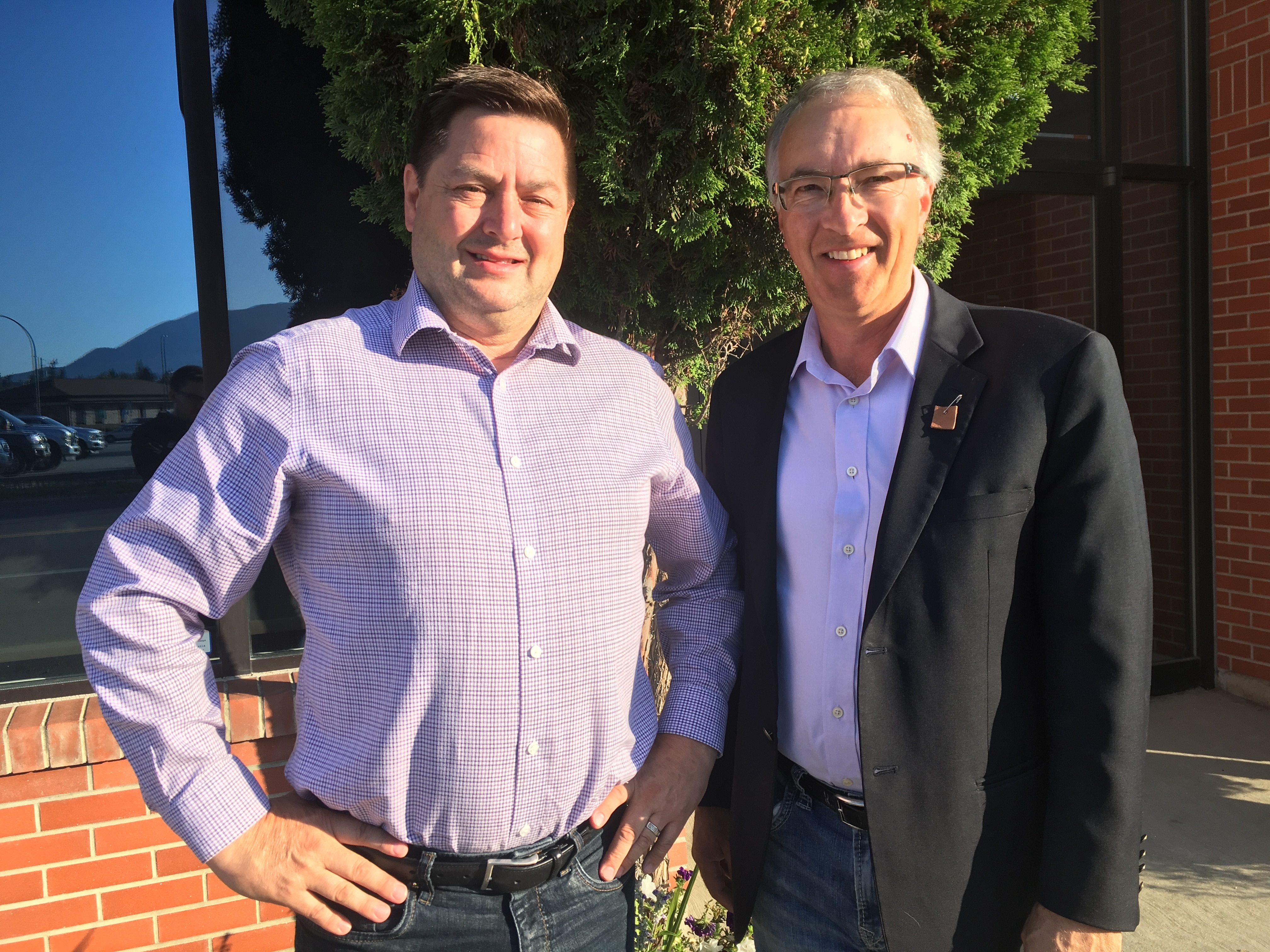BC Liberal MLAs were in Cranbrook Monday to meet with industry stakeholders to discuss the “financial crisis” the forestry industry is facing following recent mill closures and curtailments, exploring what can potentially be done to resolve the issues.
Tom Shypitka, MLA for Kootenay East hosted the stakeholder meeting with John Rustad, MLA for Nechako Lakes and the BC Liberal Critic for Forests, Lands, and Natural Resource Operations gathering approximately 20 industry and stakeholder members from the across the spectrum including mill representatives, First Nations, and ranching and farming community members.
Shpitka told Summit 107 that the goal was to bring everyone together and have an honest discussion about the issues.
“We had some large mill folks there, we had some small mill folks and sometimes the ideology or the theory or the strategy isn’t always exactly the same but it is to find those common threads between everybody and to put something together solid.”
Rustad said more than 1,000 workers have been curtailed or lost their jobs in the forestry industry, with more than 3,000 contractors also impacted and another 3,000 people on strike on Vancouver Island.
“The impact is very real and it’s fairly broad spread and the question is, when will this get better, because the markets are still soft in the States, we’re near the end of the construction season now – approaching the end of the construction season, we’re worried about where prices will go from here,” Rustad told Summit 107. “Without government stepping up to the plate and helping now, how far will this go, how bad could this get?”
Rustad said they began work on the forestry issues as the end of May and began touring and holding Town Hall meetings with stakeholders across British Columbia at in June, planning to move over into the Lower Mainland and Vancouver Island areas later in the summer.
While the two MLAs didn’t offer specific solutions to the forestry issues, they said they would like to see the B.C. Government take action and show urgency, as they continue their consultation and formulate their own strategy and plan.
“We’re going to follow up, we’re going to compile the data that we got and then with John’s tour that he’s going across the province, he’s touching every point of the province – between all of this input we’re going to come up with a good, solid short-term and long-term strategy,” said Shypitka.
“It was a very good discussion and I’m optimistic about where the future of the forest industry is going but I’m also very concerned about the current situation and policy steps that this government has taken that has created us to be an uncompetitive industry,” added Rustad.
In the meetings, Rustad said the key concerns he’s hearing relate to caribou and wildlife habitat management and forestry supply. Believing there will always be conflicts with nature in terms of forestry harvesting, Rustad told Summit 107 that there needs to be a strategy for ungulate recovery that also explores predator management alongside habitat concerns. Rustad said it is possible for both to coexist and he hopes they can find a long-term solution to both issues.
Immediately, Rustand and Shypitka believe financial assistance should be provided to workers affected by the mill closures and curtailments. Long-term, Shypitka and Rustad believe forestry practices needs to be revamped and retooled so that the strategies aren’t cyclical and change every couple years, but look at the next 20, 30, or 40 years for British Columbia’s forestry industry.




